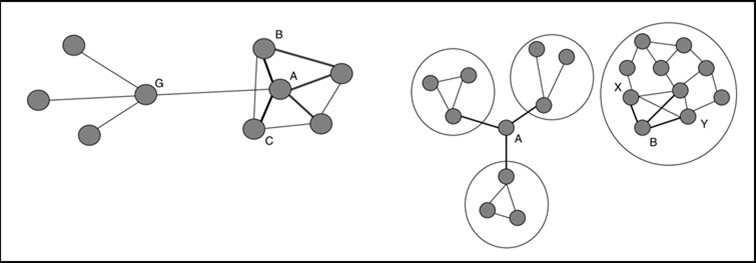
Top stories






More news




ESG & Sustainability
#Sona2026: President announces crisis committee to tackle SA's water challenges












Although there is no agreed-upon definition for the term (as we find with many social science concepts), the description of SC as having access to resources (both existing and potential) through others, would largely suffice for our purposes. So we could say that people in the right circles, related (blood and otherwise) to the right people, and having a positive mindset for building relationships, would have more SC.
However, the concept that turned everything on its head, was a paper by Granovetter in 1973, where he investigated job search strategies, and arrived at the anomalous statement that has become lore in the study of networks: SWT (the strength of weak networks theory). Essentially he affirmed that outcomes such as job hunting success, was more likely when weak ties were activated. Let me give you a personal example of its application:
It was 1984, and I wanted (desperately) to do my MBA at UCT. I went for the interview – unprepared – with the result that the rejection letter arrived within a week. Now that I had the outcome of my faux pas on paper, I needed to fix my error. I recalled that my brother-in-law had a friend (actually an acquaintance) who did his MBA and sat on the student board of the school.
He was a pharmacist (which also happened to be my undergrad), so I went to visit him at his store and shared my lamentable position. He said he would see what he could do. I was invited back for a second round, and this time did not make the same mistake. The strength of a weak tie.
Nineteen years after SWT entered our lexicon, Ronald Burt proposed the concept of structural holes (SH). These are essential links that you have outside your circle of peers, friends, colleagues and other groups you would consider close connections. What Burt proposed, is that when you mix with your existing contacts, it’s the same information that goes around and around – so things like innovation suffer in the organisation. In other words, if we mix with the same people, we get more redundant information.
Although both theories say something similar about building SC, this diagram gives us a picture of the relationship between the concepts. ‘A’ on the left has more weak ties. ‘A’ to the right has more non-redundant ties, and ‘B’ is swimming in the same stuff day after day with redundant ties – the same old information – just the day changes.

There are numerous studies that show a positive correlation between SC and success factors such as profitability. However, there is empirical evidence for SC also being an antidote for the decline in wellness due to a modern society reducing our sense of connection with others. It’s good for business and good for you.
Of all the tips for building SC, this is the one that stands out for me: time is not money. We live in an uncertain world, and if you’re going to plan every interaction by evaluating its potential return, you’ve missed the point. Building social capital is about seeing life as one big experiment, where planning gives you fixed returns, but serendipity can make them exponential
